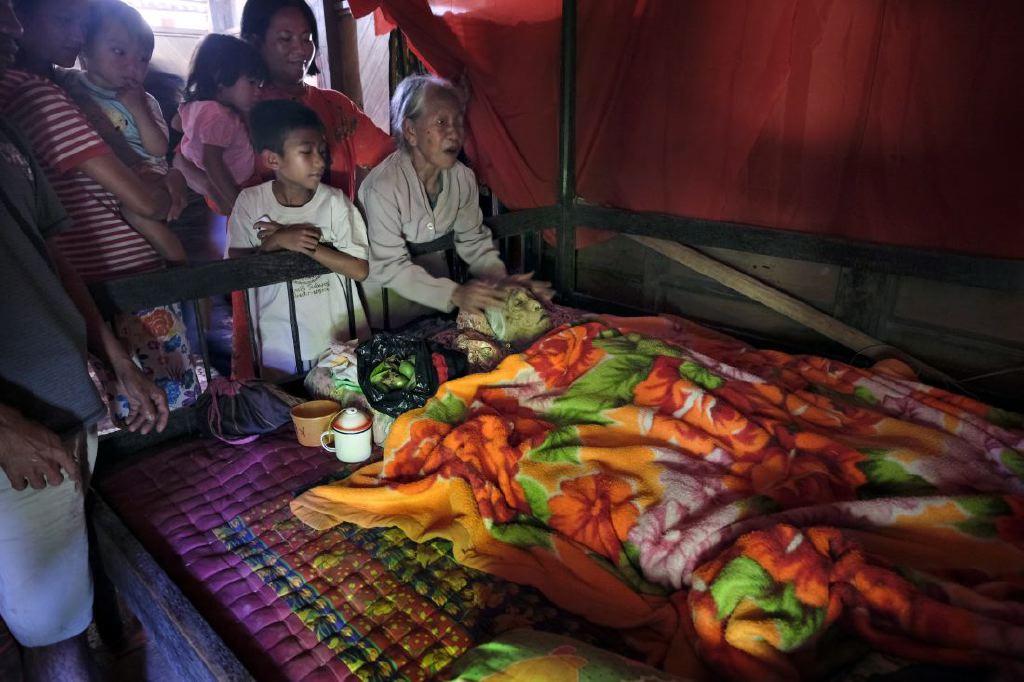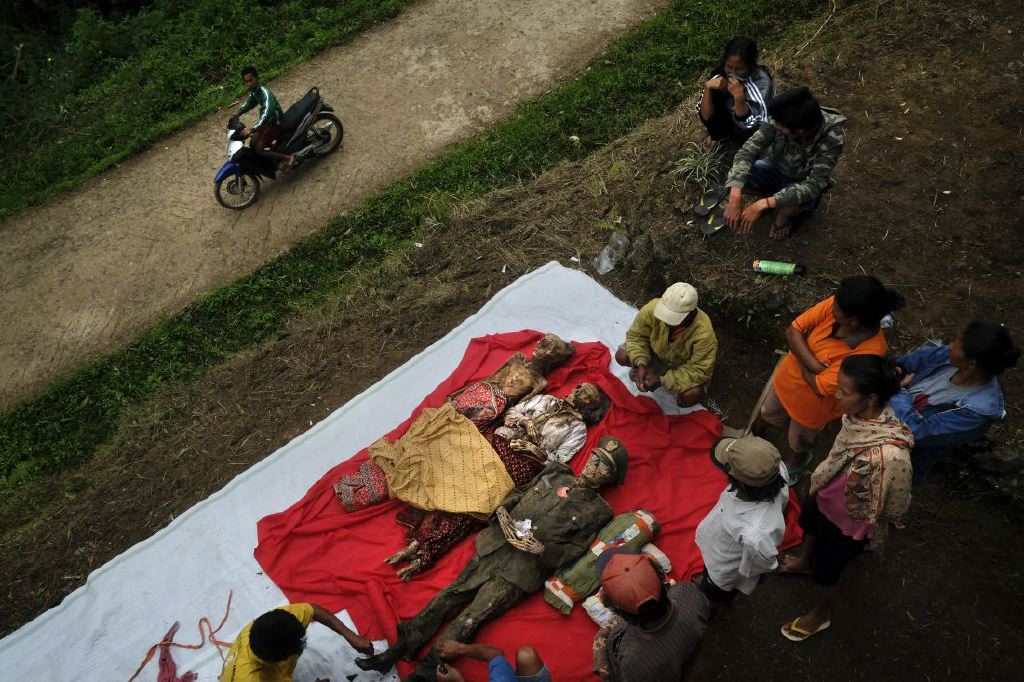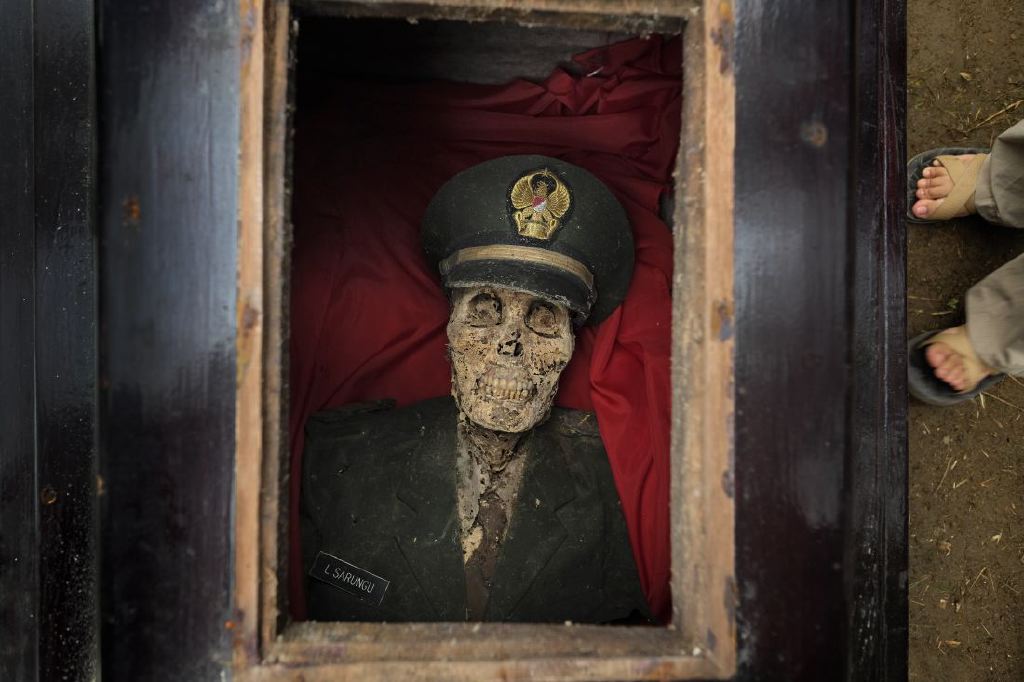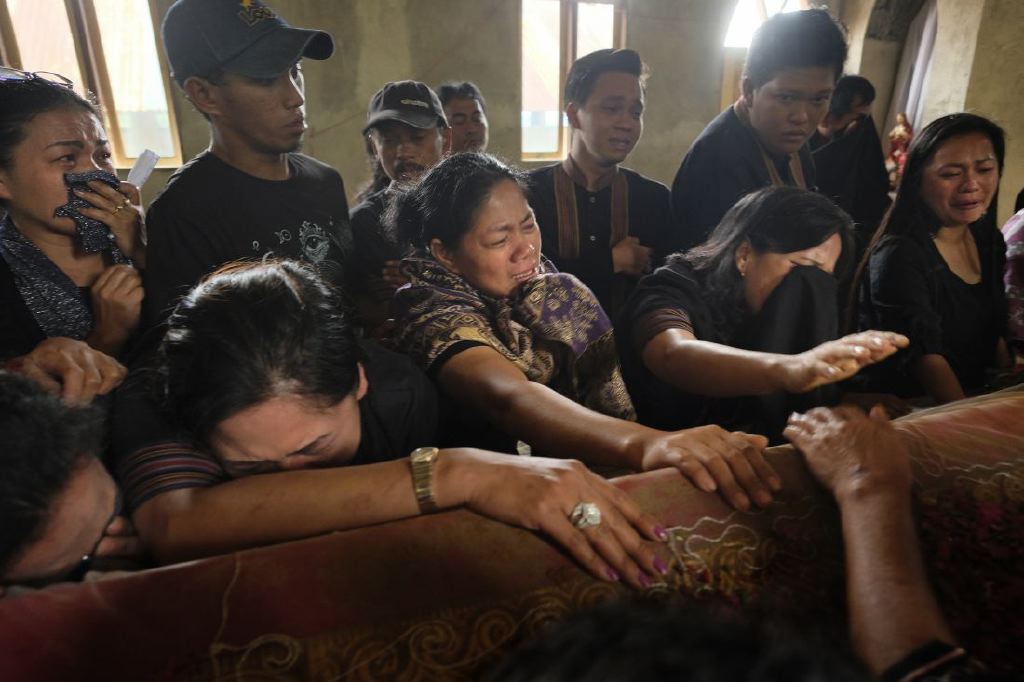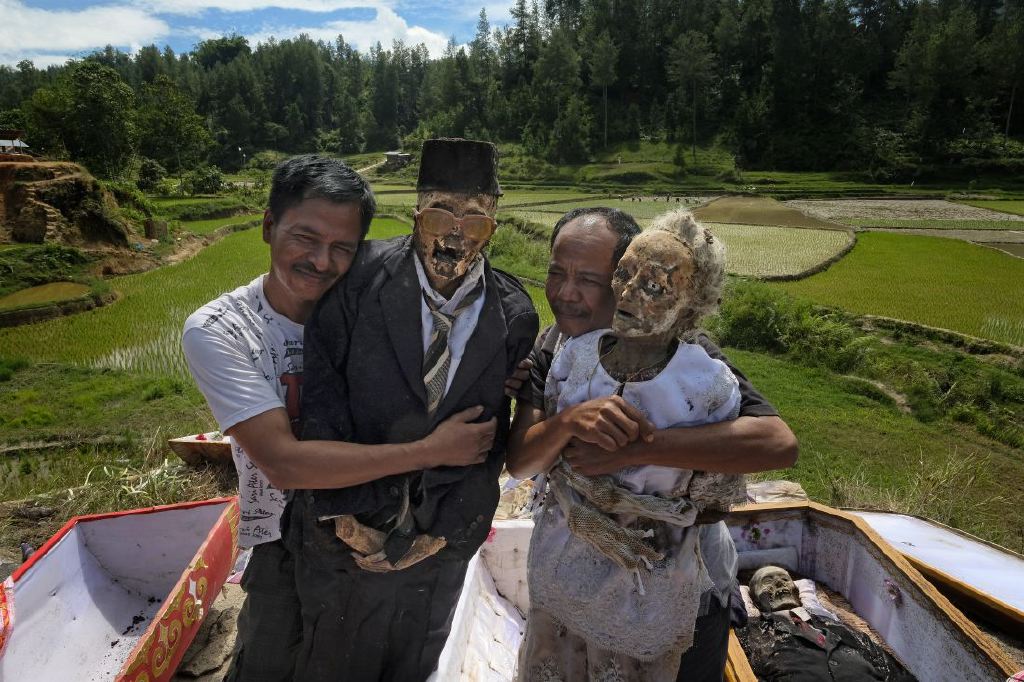1st place
gold star award
Alain Schroeder
belgium
title
Living for Death
The funeral ceremony, Rambu Solo, lasts 3 to 7 or more days according to the social status of the family and includes, traditional dances and processions for receiving guests, buffalo and coq fighting, animal sacrifice and large feasts.
In the region of Pangala, the Ma' Nene, or cleaning of the corpses, ceremony takes place in August after the rice harvest. Coffins are removed from their burial sites and opened. The mummies are cleaned, dried in the sun and given a change of clothes. Expressions of sadness are mixed with the overall happy atmosphere surrounding these moments of bonding with loved ones and honoring ancestors.
In 2013, he uprooted his life, trading-in his shares in Reporters, to pursue life on the road with a camera. Schroeder now travels the world shooting stories focusing on social issues, people and their environment. «I am not a single shot photographer. I think in series,» he says adding, «I strive to tell a story in 10-15 pictures, capturing the essence of an instant with a sense of light and framing.»
He has won many international awards including Nikon Japan, Nikon Belgium, TPOTY, Istanbul Photo, Days Japan, Trieste Photo, PX3, IPA, MIFA, BIFA, PDN, the Fence, Lens Culture, Siena, POYI and World Press Photo.
He is represented in France by REA.
Website: https://alainschroeder.myportfolio.com
Instagram: alainschroeder
back to gallery
entry description
In Toraja, the rituals associated with death are complex, require extensive planning and are expensive. Therefore, when a person dies, it can take weeks, months even years for the family to organize the funeral. During this time, the deceased is considered to be "sick" and kept at home. Relatives continue to interact with them offering gifts of cigarettes and betel leaves, drinking coffee, having meals by their side and conversing with them. While, it remains a sad time, the transition from life to death is a slow and peaceful process strengthening family bonds. Depending on the family, the body may be kept uncovered, bundled in layers of cloth or in a coffin.The funeral ceremony, Rambu Solo, lasts 3 to 7 or more days according to the social status of the family and includes, traditional dances and processions for receiving guests, buffalo and coq fighting, animal sacrifice and large feasts.
In the region of Pangala, the Ma' Nene, or cleaning of the corpses, ceremony takes place in August after the rice harvest. Coffins are removed from their burial sites and opened. The mummies are cleaned, dried in the sun and given a change of clothes. Expressions of sadness are mixed with the overall happy atmosphere surrounding these moments of bonding with loved ones and honoring ancestors.
about the photographer
Belgian photographer Alain Schroeder (b. 1955) has been working in the industry for over four decades. During his tenure as a sports photographer in the 80s, his shots appeared on more than 500 magazine covers. Book assignments and editorial pieces with subjects as diverse as travel, art, culture and human interest followed and in 1989, he co-founded the Belgian photo agency, Reporters. Schroeder led the business during the golden years of photography and into the digital age.In 2013, he uprooted his life, trading-in his shares in Reporters, to pursue life on the road with a camera. Schroeder now travels the world shooting stories focusing on social issues, people and their environment. «I am not a single shot photographer. I think in series,» he says adding, «I strive to tell a story in 10-15 pictures, capturing the essence of an instant with a sense of light and framing.»
He has won many international awards including Nikon Japan, Nikon Belgium, TPOTY, Istanbul Photo, Days Japan, Trieste Photo, PX3, IPA, MIFA, BIFA, PDN, the Fence, Lens Culture, Siena, POYI and World Press Photo.
He is represented in France by REA.
Website: https://alainschroeder.myportfolio.com
Instagram: alainschroeder
back to gallery

